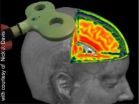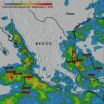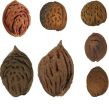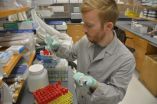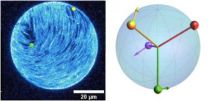(Press-News.org) World leading tobacco experts argue that a recently published World Health Organization (WHO)-commissioned review of evidence on e-cigarettes contains important errors, misinterpretations and misrepresentations putting policy-makers and the public in danger of foregoing the potential public health benefits of e-cigarettes.
The authors, writing today in the journal Addiction, analyse the WHO-commissioned Background Paper on E-cigarettes, which looks to have been influential in the recently published WHO report calling for greater regulation of e-cigarettes.
Professor Ann McNeill, lead author from the National Addiction Centre at King's College London, says: "We were surprised by the negativity of the commissioned review, and found it misleading and not an accurate reflection of available evidence. E-cigarettes are new and we certainly don't yet have all the answers as to their long-term health impact, but what we do know is that they are much safer than cigarettes, which kill over 6 million people a year worldwide. Furthermore, the review appears to have informed the policy recommendations published in last week's WHO report on e-cigarettes. Any policies surrounding e-cigarettes must be evidence based and like any product, e-cigarettes should be subjected to some form of regulation. However, the WHO's approach will make it harder to bring these products to market than tobacco products, inhibit innovation and put off smokers from using e-cigarettes, putting us in danger of foregoing the public health benefits these products could have."
The article by McNeill and colleagues takes nine key statements in the WHO-commissioned review and provides an alternative conclusion and a commentary. Highlights include:
The review implies that e-cigarette use in youth is a major problem and could be acting as a gateway to smoking when in fact current The review fails to acknowledge that e-cigarettes are not just less harmful than tobacco cigarettes but that the concentrations of toxins are mostly a tiny fraction of what is found in cigarette smoke
The review infers that bystanders can inhale significant levels of toxins from the vapour when the concentrations are too low to present a significant health risk
The review gives the impression that evidence suggests that e-cigarettes inhibit smoking cessation when the opposite is true
McNeill and colleagues criticise the authors of the review for using alarmist language to describe findings and to present opinion as though it were evidence.
Professor Peter Hajek, co-author from the Tobacco Dependence Research Unit at Queen Mary University of London, says: "There are currently two products competing for smokers' custom. One, the conventional cigarette, endangers users and bystanders and recruits new customers from among non-smoking children who try it. The other, e-cigarette, is orders of magnitude safer, poses no risk to bystanders, and generates negligible rates of regular use among non-smoking children who try it. The WHO recommendations blur these differences and if followed, will cripple the competitiveness of e-cigarettes and help to maintain the market monopoly of conventional cigarettes."
Dr Jacques le Houezec, co-author and consultant in Public Health and Tobacco dependence in France and Honorary Lecturer at the University of Nottingham, says: "E-cigarette use has been a consumer led revolution, the speed at which these products have developed and evolved shows just how much smokers are ready to adopt harm-reduction products. The use of e-cigarettes could save millions of lives during this century, and have the most important public health impact in the history of tobacco use."
The paper follows an editorial published this week in the British Journal of General Practice by public health experts from UCL who also argue that public health messages about e-cigarettes should be based on facts and not prejudice. They estimate that for every million smokers who switch from tobacco to e-cigarettes, over 6,000 premature deaths would be prevented each year in the UK.
Professor Robert West from UCL, lead author of the editorial, says: "I completely understand concerns about potential risks from this phenomenon but it is vital that public health experts separate opinion from evidence and present the latter as objectively as possible."
INFORMATION:
For a copy of the Addiction paper, or interviews with its authors, please contact Louise Pratt, PR & Communications Manager, Institute of Psychiatry, Psychology & Neuroscience, King's College London, T: +44(0)207 848 5378, M: +44(0)7850 919020, E: louise.a.pratt@kcl.ac.uk
For a copy of the BJGP paper, or interviews its authors, please contact Harry Dayantis in the UCL press office, T: +44(0)20 3108 3844, M: +44(0)7747 565056, E: h.dayantis@ucl.ac.uk
Paper references:
McNeill A et al. 'A critique of a WHO-commissioned report and associated article on electronic cigarettes' published in Addiction, doi: 10.1111/add.12730 - Free to download for one month after publication: http://onlinelibrary.wiley.com/journal/10.1111/%28ISSN%291360-0443/accepted
Robert West & Jamie Brown, 'Electronic cigarettes: fact and faction' published in the British Journal of General Practice available here: http://bjgp.org/content/64/626/442.full
Grana R. et al Background Paper on E-cigarettes (December 2013) available here: http://escholarship.org/uc/item/13p2b72n#page-1
About Addiction
Addiction is a monthly international scientific journal publishing peer-reviewed research reports on alcohol, illicit drugs, tobacco, and gambling as well as editorials and other debate pieces. Owned by the Society for the Study of Addiction, it has been in continuous publication since 1884. Addiction is the number one journal in the 2013 ISI Journal Citation Reports Ranking in the Substance Abuse Category (Social Science Edition). Membership to the Society for the Study of Addiction is £85 and includes an annual subscription to Addiction.
About King's College London
King's College London is one of the top 20 universities in the world (2013/14 QS World University Rankings) and the fourth oldest in England. It is The Sunday Times 'Best University for Graduate Employment 2012/13'. King's has nearly 26,000 students (of whom more than 10,600 are graduate students) from some 140 countries worldwide, and more than 7,000 staff. The College is in the second phase of a £1 billion redevelopment programme which is transforming its estate.
King's has an outstanding reputation for providing world-class teaching and cutting-edge research. In the 2008 Research Assessment Exercise for British universities, 23 departments were ranked in the top quartile of British universities; over half of our academic staff work in departments that are in the top 10 per cent in the UK in their field and can thus be classed as world leading. The College is in the top seven UK universities for research earnings and has an overall annual income of nearly £590 million.
King's has a particularly distinguished reputation in the humanities, law, the sciences (including a wide range of health areas such as psychiatry, medicine, nursing and dentistry) and social sciences including international affairs. It has played a major role in many of the advances that have shaped modern life, such as the discovery of the structure of DNA and research that led to the development of radio, television, mobile phones and radar.
King's College London and Guy's and St Thomas', King's College Hospital and South London and Maudsley NHS Foundation Trusts are part of King's Health Partners. King's Health Partners Academic Health Sciences Centre (AHSC) is a pioneering global collaboration between one of the world's leading research-led universities and three of London's most successful NHS Foundation Trusts, including leading teaching hospitals and comprehensive mental health services. For more information, visit: http://www.kingshealthpartners.org.
King's fundraising campaign – World questions|King's answers – created to address some of the most pressing challenges facing humanity has reached its £500 million target 18 months ahead of schedule. The College is now aiming to build on this success and raise a further £100 million by the end of 2015, to fund vital research, deliver innovative new treatments and to support scholarships. The campaign's five priority areas are neuroscience and mental health, leadership and society, cancer, global power and children's health. More information about the campaign is available at http://www.kcl.ac.uk/kingsanswers.
WHO-commissioned report on e-cigarettes misleading, say experts
World leading tobacco experts argue that a recently published WHO-commissioned review of evidence on e-cigarettes contains important errors, misinterpretations and misrepresentations
2014-09-05
ELSE PRESS RELEASES FROM THIS DATE:
Visualizing plastic changes to the brain
2014-09-05
Tinnitus, migraine, epilepsy, depression, schizophrenia, Alzheimer's: all these are examples of diseases with neurological causes, the treatment and study of which is more and more frequently being carried out by means of magnetic stimulation of the brain. However, the method's precise mechanisms of action have not, as yet, been fully understood. The work group headed by PD Dr Dirk Jancke from the Institut für Neuroinformatik was the first to succeed in illustrating the neuronal effects of this treatment method with high-res images.
Painless Therapy
Transcranial magnetic ...
Harvard and Cornell researchers develop untethered, autonomous soft robot
2014-09-05
New Rochelle, NY, September 4, 2014--Imagine a non-rigid, shape-changing robot that walks on four "legs," can operate without the constraints of a tether, and can function in a snowstorm, move through puddles of water, and even withstand limited exposure to flames. Harvard advanced materials chemist George Whitesides, PhD and colleagues describe the mobile, autonomous robot they have created in Soft Robotics, a peer-reviewed journal from Mary Ann Liebert, Inc., publishers. The article is available on the Soft Robotics website.
In "A Resilient, Untethered Soft Robot," ...
Study: Viral infection in nose can trigger middle ear infection
2014-09-05
WINSTON-SALEM, N.C. – Sept. 5, 2014 – Middle ear infections, which affect more than 85 percent of children under the age of 3, can be triggered by a viral infection in the nose rather than solely by a bacterial infection, according to researchers at Wake Forest Baptist Medical Center.
By simultaneously infecting the nose with a flu virus and a bacterium that is one of the leading causes of ear infections in children, the researchers found that the flu virus inflamed the nasal tissue and significantly increased both the number of bacteria and their propensity to travel ...
NASA adds up heavy rainfall from Hurricane Norbert
2014-09-05
As Hurricane Norbert continued dropping heavy amounts of rainfall on Mexico's Baja California on September 5, NASA's TRMM satellite calculated the rain that had already fallen.
From its orbit in space, the Tropical Rainfall Measuring Mission or TRMM satellite has the capability of determining how much rainfall has occurred over given areas. Data from TRMM was compiled into a rainfall map that showed the rainfall generated from Tropical Storm Dolly and Hurricane Norbert from August 28 through September 4, 2014.
Tropical storm Dolly dissipated quickly after coming ashore ...
It's the pits: Ancient peach stones offer clues to fruit's origins
2014-09-05
Anyone who enjoys biting into a sweet, fleshy peach can now give thanks to the people who first began domesticating this fruit: Chinese farmers who lived 7,500 years ago.
In a study published today in PLOS ONE, Gary Crawford, a U of T Mississauga anthropology professor, and two Chinese colleagues propose that the domestic peaches enjoyed worldwide today can trace their ancestry back at least 7,500 years ago to the lower Yangtze River Valley in Southern China, not far from Shanghai. The study, headed by Yunfei Zheng from the Zhejiang Institute of Archeology in China's ...
Like weeds of the sea, 'brown tide' algae exploit nutrient-rich coastlines
2014-09-05
The sea-grass beds of Long Island's Great South Bay once teemed with shellfish. Clams, scallops and oysters filtered nutrients from the water and flushed money through the local economy. But three decades after the algae that cause brown tides first appeared here, much of the sea grass and the bounty it used to provide is gone.
Spring on eastern Long Island is now marked by dense blooms of Aureococcus anophagefferens, which turn estuaries like Great South Bay the color of mud and crowd out native sea grass and stunt or poison shellfish. For years, researchers have puzzled ...
Past sexual assault triples risk of future assault for college women
2014-09-05
BUFFALO, N.Y. -- Disturbing news for women on college campuses: a new study from the University at Buffalo Research Institute on Addictions (RIA) indicates that female college students who are victims of sexual assault are at a much higher risk of becoming victims again.
In fact, researchers found that college women who experienced severe sexual victimization were three times more likely than their peers to experience severe sexual victimization the following year.
RIA researchers followed nearly 1,000 college women, most age 18 to 21, over a five-year period, studying ...
Breast cancer specialist reports advance in treatment of triple-negative breast cancer
2014-09-05
William M. Sikov, a medical oncologist in the Breast Health Center and associate director for clinical research in the Program in Women's Oncology at Women & Infants Hospital of Rhode Island, served as study chair and lead author for a recently-published major national study that could lead to improvements in outcomes for women with triple-negative breast cancer, an aggressive form of the disease that disproportionately affects younger women.
"Impact of the Addition of Carboplatin and/or Bevacizumab to Neoadjuvant Once-Per-Week Paclitaxel Followed by Dose-Dense Doxorubicin ...
Syracuse University physicists explore biomimetic clocks
2014-09-05
Working with a team of scientists from the Technical University of Munich (TU Munich), Brandeis University, and Leiden University in the Netherlands, M. Cristina Marchetti and Mark Bowick, professors in the Soft Matter Program in the Syracuse University College of Arts and Sciences, have engineered and studied "active vesicles." These purely synthetic, molecularly thin sacs are capable of transforming energy, injected at the microscopic level, into organized, self-sustained motion.
Their findings are the subject of a cover-story in the Sept. 5 issue of Science magazine.
The ...
Thousands of nuclear loci via target enrichment and genome skimming
2014-09-05
The use of next-generation sequencing (NGS) technologies in phylogenetic studies is in a state of continual development and improvement. Though the botanically-inclined have historically focused on markers from the chloroplast genome, the importance of incorporating nuclear data is becoming increasingly evident. Nuclear genes provide not only the potential to resolve relationships between closely related taxa, but also the means to disentangle hybridization and better understand incongruences caused by incomplete lineage sorting and introgression.
By harnessing the power ...
LAST 30 PRESS RELEASES:
A kaleidoscope of cosmic collisions: the new catalogue of gravitational signals from LIGO, Virgo and KAGRA
New catalog more than doubles the number of gravitational-wave detections made by LIGO, Virgo, and KAGRA observatories
Antifibrotic drug shows promise for premature ovarian insufficiency
Altered copper metabolism is a crucial factor in inflammatory bone diseases
Real-time imaging of microplastics in the body improves understanding of health risks
Reconstructing the world’s ant diversity in 3D
UMD entomologist helps bring the world’s ant diversity to life in 3D imagery
ESA’s Mars orbiters watch solar superstorm hit the Red Planet
The secret lives of catalysts: How microscopic networks power reactions
Molecular ‘catapult’ fires electrons at the limits of physics
Researcher finds evidence supporting sucrose can help manage painful procedures in infants
New study identifies key factors supporting indigenous well-being
Bureaucracy Index 2026: Business sector hit hardest
ECMWF’s portable global forecasting model OpenIFS now available for all
Yale study challenges notion that aging means decline, finds many older adults improve over time
Korean researchers enable early detection of brain disorders with a single drop of saliva!
Swipe right, but safer
Duke-NUS scientists identify more effective way to detect poultry viruses in live markets
Low-intensity treadmill exercise preconditioning mitigates post-stroke injury in mouse models
How moss helped solve a grave-robbing mystery
How much sleep do teens get? Six-seven hours.
Patients regain weight rapidly after stopping weight loss drugs – but still keep off a quarter of weight lost
GLP-1 diabetes drugs linked to reduced risk of addiction and substance-related death
Councils face industry legal threats for campaigns warning against wood burning stoves
GLP-1 medications get at the heart of addiction: study
Global trauma study highlights shared learning as interest in whole blood resurges
Almost a third of Gen Z men agree a wife should obey her husband
Trapping light on thermal photodetectors shatters speed records
New review highlights the future of tubular solid oxide fuel cells for clean energy systems
Pig farm ammonia pollution may indirectly accelerate climate warming, new study finds
[Press-News.org] WHO-commissioned report on e-cigarettes misleading, say expertsWorld leading tobacco experts argue that a recently published WHO-commissioned review of evidence on e-cigarettes contains important errors, misinterpretations and misrepresentations
